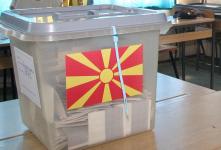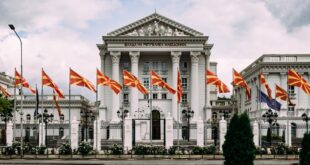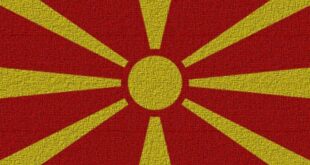 Displaced people and prisoners ahead of Sunday’s presidential and mayoral elections in Macedonia.
Displaced people and prisoners ahead of Sunday’s presidential and mayoral elections in Macedonia.
Ballot stations in prisons and community centres opened at 0700 CET (0600 GMT) and will close at 1900 CET (1800) on Saturday, one day before the nationwide poll on Sunday.
Around 2,000 inmates are eligible to vote with around 500 internally displaced people from the 2001 armed conflict, many of them living in two temporary shelters in Skopje and Kumanovo, the State Election Commission said.
Registered ill and disabled voters can also cast their ballots on Saturday. Specially-appointed representatives from the electoral commissions will visit them in their homes.
On Sunday, about 1.8 million voters are eligible to cast their votes in the poll.
In the presidential election, the country is being treated as a single electoral unit which is being contested by seven candidates.
In the largely colourless campaign, the relative popularity of the ethnic Albanian candidate Imer Selmani has raised eyebrows and opinion polls show he has a chance of becoming the first ethnic Albanian to enter the second round of presidential elections, scheduled for April 5.
Unlike his competitors who have campaigned exclusively for the vote in their own ethnic constituency, Selmani has campaigned in Macedonian majority areas with many Macedonian voters indicating they may vote for him.
However opinion polls show the ruling VMRO DPMNE candidate Georgi Ivanov with a firm lead. Along with Selmani, Ljubomir Frckoski fielded by the main opposition, the Social Democrats, is also a potential runner-up.
If no one wins more than half of the votes in the first round, a run-off will be held on April 5 between the two front-runners.
In Sunday’s local election, posts for 84 municipality mayors are also up for grabs. The most prestigious position will be the mayor for the capital Skopje.
The vote will be closely monitored by the European Union, which sees it as an important indication of the country’s democratic record after last year’s June general election was marred by violence and fraud in ethnic Albanian areas.
Following a plea from both local and international officials for a free and fair election, police say officers will be present at each of the around 3,000 ballot stations.
The State Election Commission has accredited 6,981 domestic observers and 524 foreign monitors, mostly coming from the Organisation for Security and Cooperation in Europe.
 Eurasia Press & News
Eurasia Press & News



